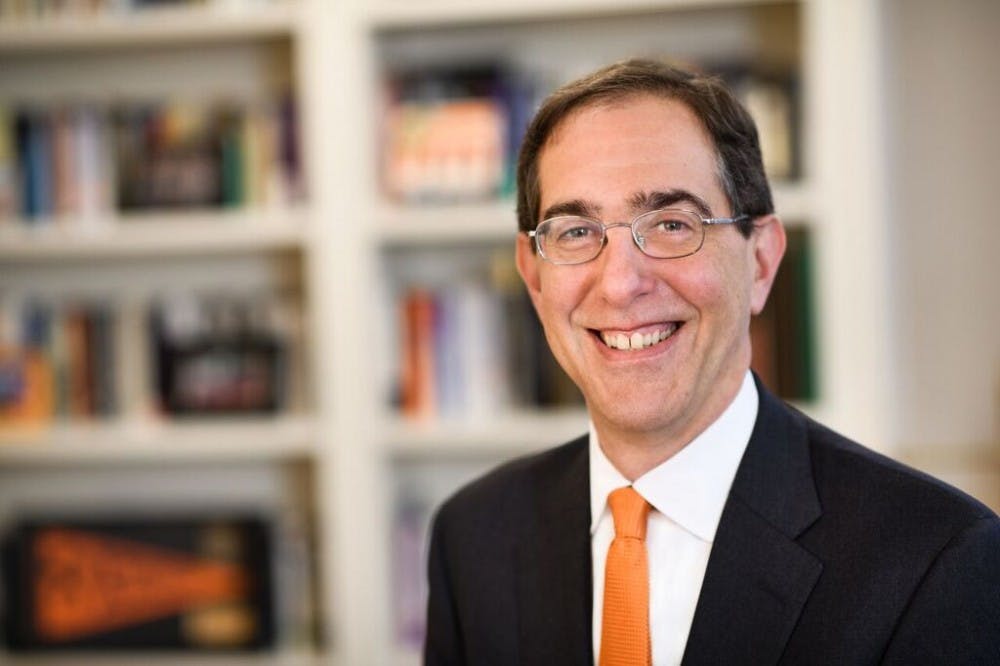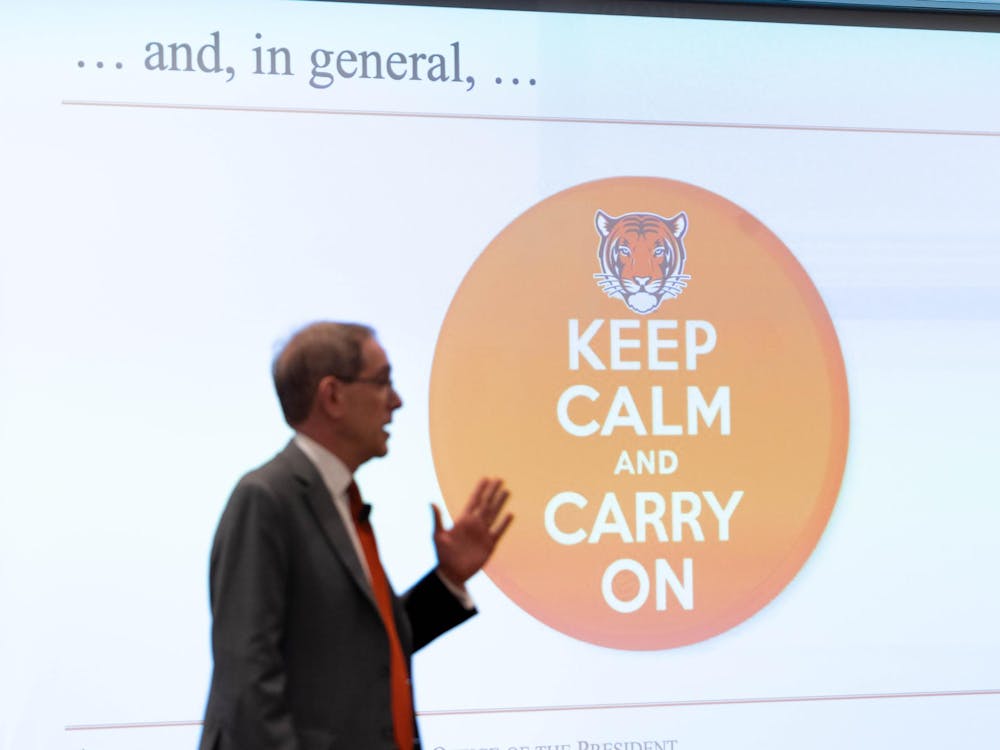On April 18, President Christopher Eisgruber ’83 joined 62 other university presidents and chancellors in affirming the value of free speech on college campuses at an Association of American Universities meeting in Washington, D.C.
“Robust debate and vigorous argument are essential to the research and teaching missions of America’s leading universities,” Eisgruber said, adding that he is pleased the AAU is expressing their commitment to free speech, a value that is critical for the future of higher education and for democracy.
The AAU comprises research universities in the United States that are committed to advancing “society through education, research, and discovery,” according to their website. This year, the AAU president has issued statements regarding immigration reform, net neutrality, and tax legislation.
The AAU has also created joint statements with other national and global organizations urging Congress to pass legislation geared towards ending corruption in the patent system and developing more printed materials for disabled college students.
The statement on free speech, written at the group’s annual spring meeting of presidents and chancellors, asserted that “the free and open exchange of ideas and information is fundamental to the educational mission of AAU universities.”
This exchange of ideas has allowed for the growth of democracy, the spread of new knowledge, academic excellence, and further social progress, the statement continued. The statement also noted that while many may deem some speech to be disgraceful, campuses should continue to places where ideas can be expressed free of disruption, intimidation, and violence.
However, the statement subsequently pointed out that protecting freedom of speech should still “promote an inclusive and non-discriminatory learning environment, and protect our communities from those who seek to promote conflict rather than conversation, debate, and advocacy.”
The university leaders affirmed their commitment to preparing students, faculty, and staff to engage in frank, open, and often challenging discussions, to work to ensure that campus policies on speech, events, dissent, and other protected activities are publicly and conveniently available.
“We believe these actions are critical for our institutions to remain at the forefront of ensuring that substantive and non-violent speech is fully protected and welcomed in our society,” the statement concluded.
Eisgruber has been a vocal supporter of free speech during his presidency. The Pre-read, a program he started six years ago for freshman to engage in a shared text before stepping on campus, for the Class of 2022 is “Speak Freely: Why Universities Must Defend Free Speech,” by University politics professor Keith Whittington, which “defends a robust conception of free speech grounded in the philosophy of John Stuart Mill [and] provides a scholarly argument for free speech’s essential role in the truth-seeking mission of colleges and universities,” as Eisgruber wrote in the Princeton Alumni Weekly earlier this month.
Eisgruber noted that this year, the Pre-read will be distributed to all undergraduate and graduate students, faculty, and interested staff.
“Over the next year, I look forward to participating in spirited dialogue, vigorous debate, and civil disagreements about Keith’s book, thereby exemplifying the practices that he champions and that are the lifeblood of this University,” he wrote.

In 2015, the University became the first to adopt a statement developed by University of Chicago affirming the commitment to principles of academic freedom and freedom of expression.
Earlier this year, the University drew national attention when an anthropology professor used the N-word in class. Eisgruber expressed his support of Rosen’s decision to say this word, citing the importance of “academic freedom that allows people to have pedagogical choices on how to teach difficult subjects.”








